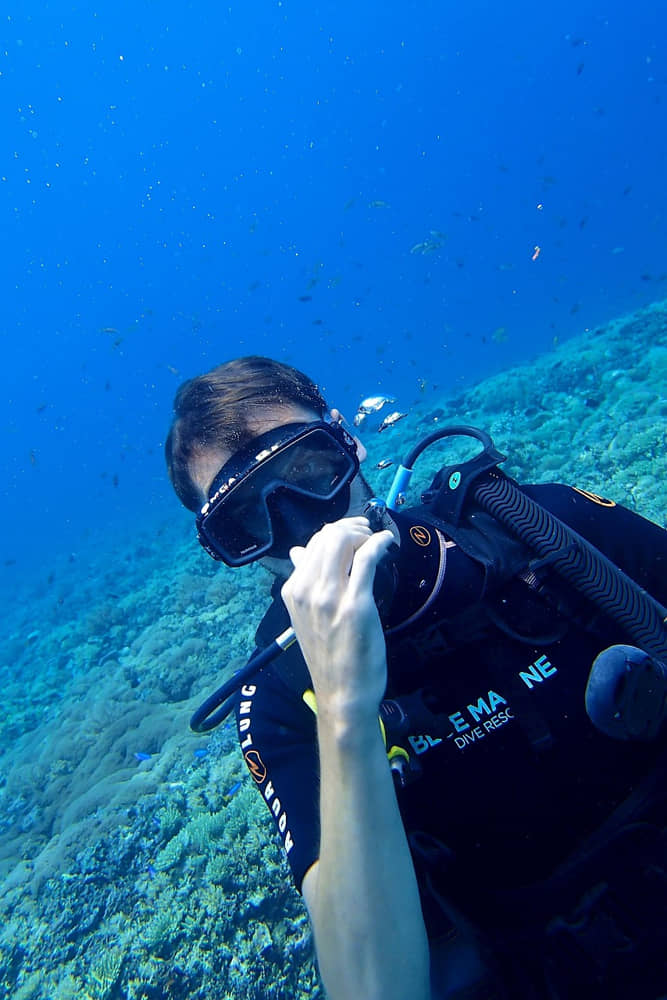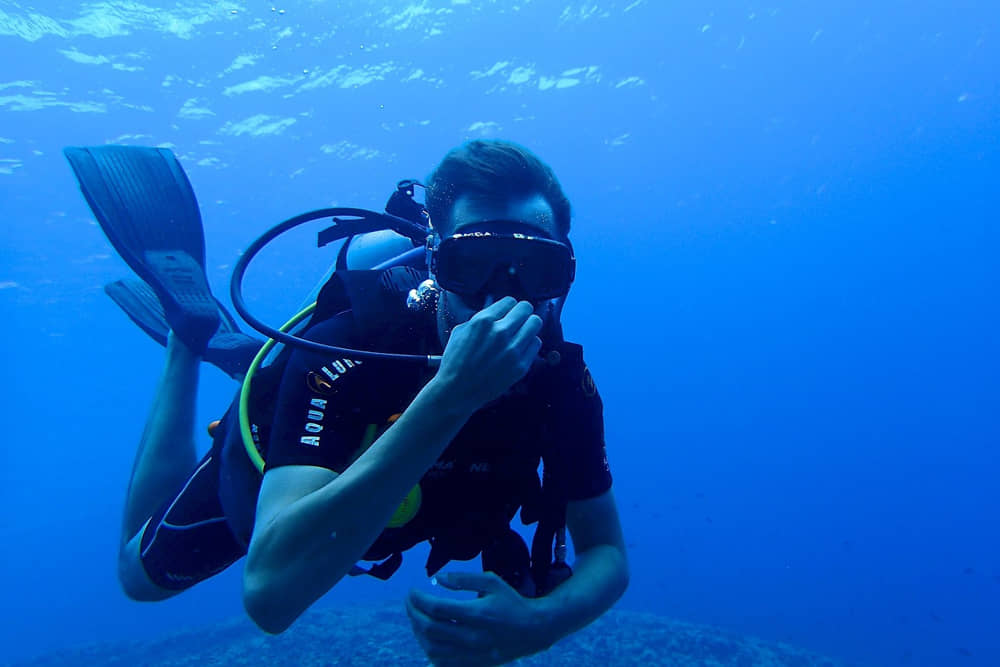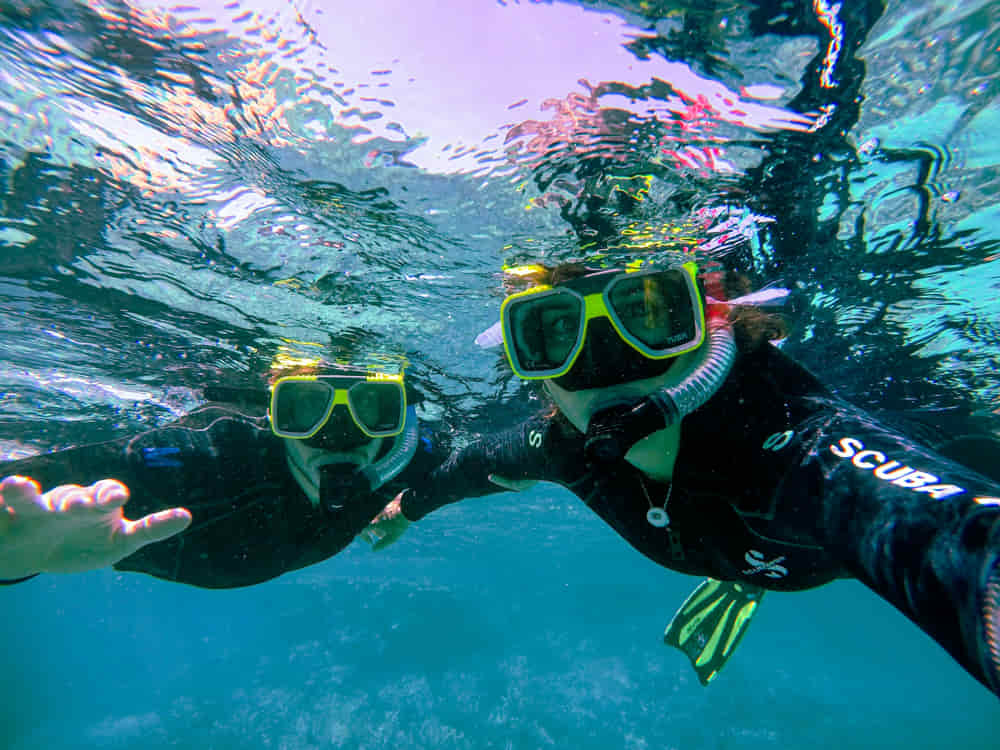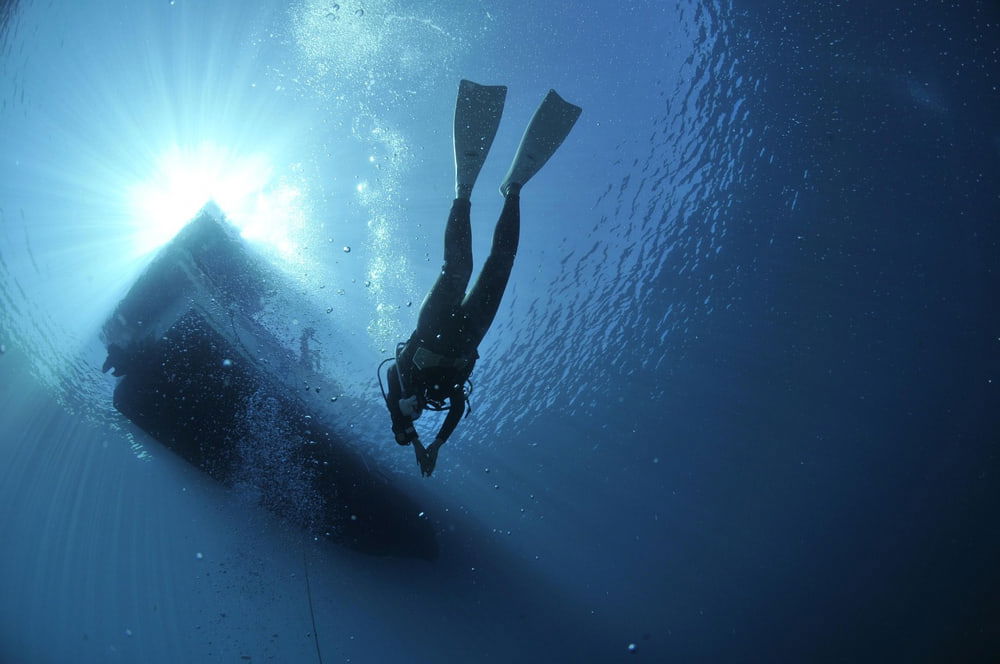Barotrauma. Sounds like the name of a supervillain in a superhero movie. In reality, it’s definitely not a positive thing when it comes to diving. It’s one of the most common (and annoying) problems you can encounter underwater, usually caused by not following some very basic steps that prevent any incidents. But don’t worry — that’s why you’re here. In this guide, we’ll explain what barotrauma is, how to detect it, how to prevent it, and what to do if you ever experience it.
Contents
What is barotrauma and why does it happen?
In simple terms, barotrauma is an injury that occurs when the body does not properly adapt to pressure changes during descent or ascent in a dive. In real terms, it’s when you feel annoying pressure in your ears or sinuses — a natural signal from your body that something isn’t right.
It happens when a body cavity (like the ears, sinuses, or even lungs) fails to equalize pressure with the surrounding environment, causing pain, discomfort, or even physical damage if not corrected in time.
The most common type is middle ear barotrauma, which usually occurs during descent when external pressure increases rapidly. Pulmonary barotrauma can also occur during ascent if you hold your breath — which you should never, ever do.
In short, barotrauma is the result of not equalizing pressures properly during a dive. And yes, it can be uncomfortable.
Risk factors that increase barotrauma
Any diver can be affected, but some conditions increase the likelihood:
- Nasal congestion or cold: diving with blocked airways is like trying to inflate a balloon with a knot — it won’t work.
- Poor equalization technique: if you don’t know how to perform the Valsalva or Frenzel maneuver, or don’t do it on time, trouble awaits. Don’t worry — instructors are there to guide you.
- Rapid descents: going down like a stone is never a good idea. Pressure changes too quickly, and you won’t have time to equalize. Instructors usually monitor this to prevent issues.
- Improper equipment: very tight or poorly fitted masks can also cause facial barotrauma.
- Fatigue or stress: mental state affects breathing and reflexes underwater.
Golden tip: if something doesn’t feel right while descending, tell your instructor. They will decide the best course of action, like ascending a few meters and trying again. Forcing descent is a guaranteed way to get barotrauma.

Symptoms of barotrauma: what to do
Middle ear barotrauma
- Intense pain or pressure in the ears
- Temporary hearing loss
- Dizziness or imbalance
- In severe cases, fluid or blood discharge
Sinus barotrauma
- Facial pain (pressure behind the forehead or cheeks)
- Nosebleeds after the dive
Pulmonary barotrauma
- Chest pain
- Difficulty breathing
- Coughing up blood (yes, it’s serious)
What to do if you suspect barotrauma
- Stop the dive. Don’t continue descending or ascending uncontrolled.
- Inform your buddy or guide.
- Exit the water calmly, controlling your ascent.
- Consult a doctor, preferably with hyperbaric medicine experience.
- Rest and do not dive again until fully recovered.
How to prevent barotrauma while diving
Prevention is the best treatment. Follow these rules to keep your ears (and other cavities) safe:
- Equalize early and often: don’t wait for pain. Start equalizing as soon as you begin descending.
- Descend slowly: as if you had all the time in the world — because you do.
- Don’t dive congested: if you have a cold, allergies, or blocked airways, skip the dive. The ocean will wait.
- Learn different equalization techniques: not all methods work for everyone. Practice Valsalva, Frenzel, or even Toynbee, and use what works best for you.
- Never hold your breath: especially on ascent. It’s one of the most serious mistakes and can cause pulmonary barotrauma.
- Stay hydrated and avoid alcohol before diving: that beer can wait until after the dive.
- Check your equipment: a poorly fitted mask can also create unnecessary pressure.
FAQs
Is barotrauma more common in beginners?
Yes, but not exclusively. Beginners are more likely to experience barotrauma because they are still learning to equalize and control descent. However, even experienced divers can forget to equalize or underestimate a cold. No one is exempt.
Can you dive with a cold or congestion?
Better not. A cold or nasal congestion can block the eustachian tubes, preventing pressure equalization in the ears and greatly increasing the risk of barotrauma. If congested, skip the dive. Your body (and ears) will thank you.
How long should I wait before diving again after mild barotrauma?
It depends on severity. For mild cases (slight ear discomfort without hearing loss), a few days of rest may be enough. For stronger symptoms, hearing loss, or bleeding, see a doctor and follow their instructions. Never dive with active symptoms. Full recovery is essential to avoid worse complications.
In summary
Don’t panic. Barotrauma doesn’t have to ruin your dive if you follow recommendations and listen to your instructor. It’s a matter of common sense. This guide explains causes, symptoms, and prevention. With good practice, barotrauma is neither severe nor common. Most importantly, listen to your body, respect its signals, and equalize!
Have you ever experienced barotrauma? Do you have any tricks that always help you equalize? Share them in the comments and let’s exchange underwater wisdom!







0 Comments